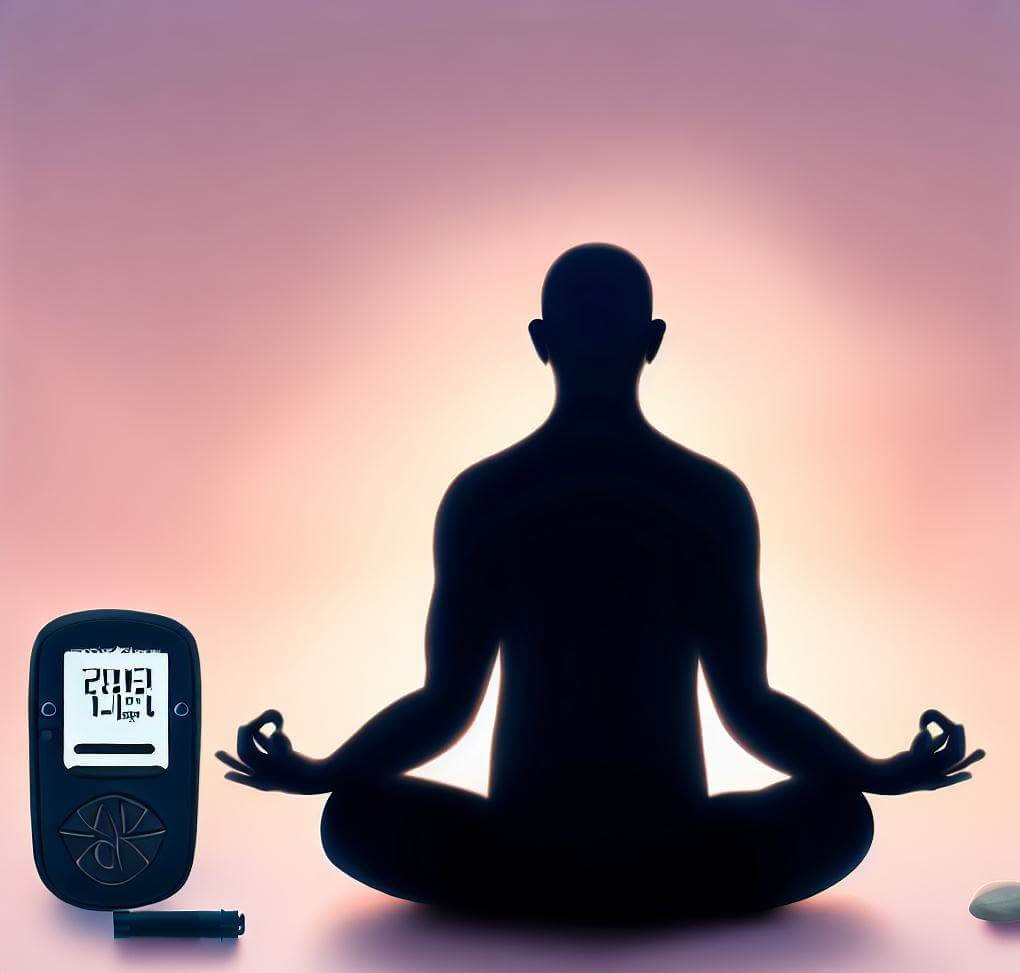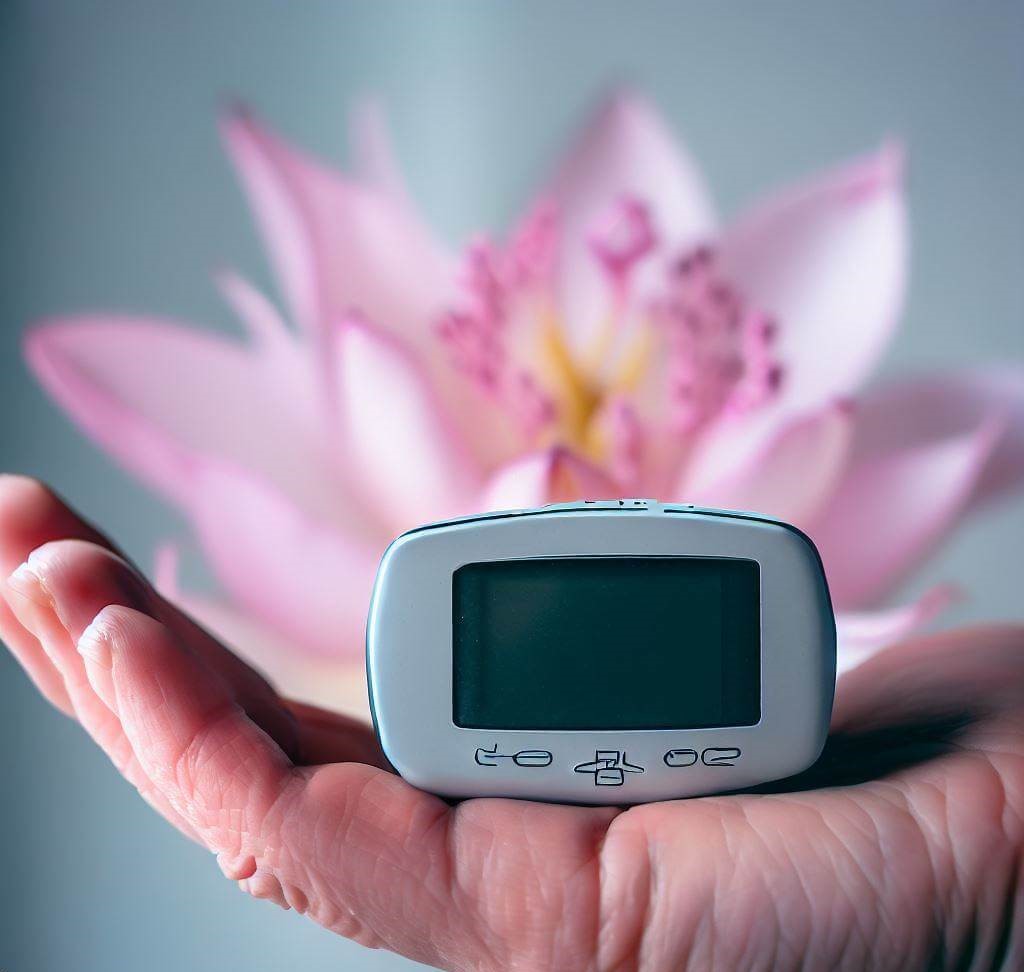Introduction
Managing diabetes is a lifelong commitment that requires not just medication but also a balanced lifestyle. This often involves grappling with stress, emotional highs and lows, and the ongoing demands of life. But what if there was a way to make this journey a little less overwhelming? Enter mindfulness—a technique that promises to bring balance, reduce stress, and improve the quality of life for diabetics. This article delves into how mindfulness can be a potent tool in your diabetes management toolkit.
Understanding Diabetes
Definition and Types
Diabetes is a chronic condition where the body either doesn’t produce enough insulin or can’t use it effectively. There are mainly two types: Type 1 and Type 2. While Type 1 is often diagnosed in childhood, Type 2 usually appears in adulthood.
Common Challenges
Managing diabetes involves a lot of discipline. Frequent blood sugar checks, medication, and lifestyle changes can be overwhelming. Additionally, stress and emotional turbulence can further complicate matters.

What is Mindfulness?
Definition and Core Principles
Mindfulness is the psychological process of bringing one’s attention to the present moment, observing thoughts, emotions, and sensations without judgment. It’s not just about being aware; it’s about being aware without evaluating or reacting. The core principles revolve around attention, awareness, and acceptance.
Historical Roots
The concept of mindfulness has its roots in ancient Buddhist philosophy, dating back over 2,500 years. However, it has since been secularized and adapted for modern therapeutic applications, most notably in Mindfulness-Based Stress Reduction (MBSR), a program developed by Dr. Jon Kabat-Zinn in 1979.
Scientific Foundation
Research over the years has supported the efficacy of mindfulness in various settings. A meta-analysis published in the journal “Psychological Bulletin” in 2012 found that mindfulness meditation programs had moderate evidence of improving anxiety, depression, and pain.
Types of Mindfulness Practices
- Focused Attention: Concentrating on a single point of focus, like your breath.
- Open Monitoring: Being aware of all that is happening around you without focusing on any particular object.
- Loving-kindness: Fostering a sense of compassion and love towards oneself and others.
Mindfulness vs. Meditation
Although the terms are often used interchangeably, mindfulness is a form of meditation. Meditation serves as an umbrella term that includes a variety of techniques, including concentration, transcendental meditation, and more. Mindfulness is a subset focusing explicitly on cultivating awareness and acceptance.

Why Mindfulness for Diabetics?
The Stress-Diabetes Connection
Stress is a well-known aggravating factor in diabetes management. Elevated stress levels can lead to the release of hormones like cortisol, which can cause blood sugar levels to rise. A study published in “Diabetes Care” in 2010 showed that mindfulness training could reduce the physiological markers of stress in patients with Type 2 diabetes.
Emotional Regulation
Managing diabetes can be an emotional rollercoaster, affecting one’s mood, relationships, and general well-being. Mindfulness techniques can help regulate emotions by increasing awareness and acceptance of these feelings. According to a study in the “Journal of Behavioral Medicine” in 2014, mindfulness interventions have been effective in improving emotional well-being among people with chronic illnesses, including diabetes.
Enhanced Self-Care
Diabetes management involves consistent self-care routines like regular exercise, proper diet, and medication. Mindfulness can improve one’s focus and decision-making abilities, thereby making it easier to stick to these self-care routines. A 2017 study published in the “Journal of Diabetes Research” found that mindfulness practice was associated with increased self-care activities in diabetics.
Overall Well-Being
Beyond stress management and emotional regulation, mindfulness offers a holistic approach to well-being. It improves sleep quality, enhances cognitive function, and fosters a greater sense of peace and balance in life. These benefits are not just anecdotal; they have been substantiated by numerous scientific studies, including research published in the “Journal of Psychosomatic Research” in 2015.
Mindfulness Techniques
Deep Breathing
Also known as diaphragmatic breathing, this technique involves inhaling deeply through the nose, allowing the lungs to fill with air as the diaphragm moves downward. A study published in the “International Journal of Yoga” in 2013 found that deep breathing can significantly reduce levels of the stress hormone cortisol.
How to Practice
- Sit or lie down comfortably.
- Inhale deeply through the nose for a count of four.
- Hold the breath for a count of seven.
- Exhale fully through the mouth for a count of eight.
Body Scan
This technique asks you to focus on different parts of your body, starting from your toes and moving upwards. According to research in the “Journal of Psychosomatic Research” in 2010, body scan meditation can effectively reduce stress and improve well-being.
How to Practice
- Lie down on your back.
- Start by focusing on your toes and gradually move upwards.
- Observe any sensations, tension, or discomfort.
- Release tension with each exhale.
Mindful Eating
This practice involves paying full attention to the experience of eating and drinking, both inside and outside the body. A review published in “Current Obesity Reports” in 2017 highlighted that mindful eating could be effective in weight management, crucial for Type 2 diabetics.
How to Practice
- Take small bites.
- Chew thoroughly.
- Savor the flavors, textures, and aromas.
- Listen to your body’s hunger and fullness signals.
Yoga and Exercise
Yoga incorporates mindfulness into physical activity. Research in the “Journal of Clinical Psychology” in 2015 suggests that yoga can improve mental health and emotional regulation. It’s especially beneficial for managing stress-related conditions, including diabetes.
How to Practice
- Choose a beginner-friendly yoga sequence.
- Focus on your breath throughout the movements.
- Observe how your body feels during each pose.
- Avoid pushing yourself too hard.

Mindfulness-Based Stress Reduction (MBSR)
This structured program combines mindfulness meditation and yoga. A study in the “Journal of Behavioral Medicine” in 2011 found that MBSR could be effective in reducing psychological distress and improving well-being among people with chronic illnesses, including diabetes.
How to Practice
- Find an MBSR program near you or online.
- Commit to regular practice, typically 8-weeks.
- Engage in daily meditation and yoga as part of the program.
- Participate in group discussions to share experiences.
Getting Started with Mindfulness
Starting Small
You don’t have to dive into an hour-long meditation session right away. Start with just 5 minutes a day. Research in “Behaviour Research and Therapy” in 2012 suggests that even short mindfulness exercises can reduce stress and improve mental well-being.
Creating the Right Environment
Choose a quiet and comfortable space for your practice. Remove any distractions like your phone, computer, or TV. The environment plays a crucial role in the effectiveness of mindfulness, as suggested by a study in “Environmental Health and Preventive Medicine” in 2017.
Consistency is Key
Consistency can be more beneficial than the length of each session. Make it a daily routine, maybe in the morning or before bed. A 2017 study in the “Journal of Occupational Health Psychology” found that daily practice leads to more significant improvements in stress reduction and mental clarity.
Use of Guided Resources
If you find it challenging to practice on your own, consider guided mindfulness sessions. Apps like Headspace or Calm offer various mindfulness exercises. A 2018 review in the “Journal of Medical Internet Research” found that mindfulness apps could indeed be effective in improving mental health.
Pros and Cons of Mindfulness for Diabetics
Pros
1. Stress Reduction
Mindfulness has been shown to significantly reduce stress by altering the body’s stress response. A study in the “Journal of Health Psychology” in 2011 found that mindfulness-based stress reduction could reduce cortisol levels, a hormone associated with stress.
2. Improved Emotional Well-being
Emotional fluctuations can affect blood sugar levels. Mindfulness techniques can help in emotional regulation. A 2014 study in “Diabetes Research and Clinical Practice” found that mindfulness practices improved emotional well-being and reduced depressive symptoms in diabetics.
3. Better Decision Making
Mindfulness can enhance cognitive functions and decision-making skills, important for managing a condition requiring constant monitoring like diabetes. According to research published in the “Journal of Cognitive Enhancement” in 2018, mindfulness training improved cognitive abilities in older adults, a demographic often affected by Type 2 diabetes.
4. Enhanced Sleep Quality
Poor sleep can exacerbate diabetes symptoms. Mindfulness can improve sleep quality, as a 2015 study in “JAMA Internal Medicine” found that mindfulness meditation improved sleep quality among older adults.
5. Low Cost and Accessibility
Mindfulness doesn’t require specialized equipment or memberships. It’s an economical addition to diabetes management plans.
Cons
1. Requires Consistent Practice
The benefits of mindfulness come with regular practice, which may be a hurdle for some.
2. Not a Substitute for Medical Treatment
Mindfulness is an adjunct therapy and not a replacement for medication or any other diabetes management plan.
3. May Not Suit Everyone
Some people find it challenging to practice mindfulness due to difficulty in focusing or other psychological reasons.
4. Time-Consuming
For those with busy schedules, carving out time daily for mindfulness practice may be challenging.
5. Limited Research
Although growing, research specifically targeted at mindfulness and diabetes is still somewhat limited.
Expert Opinions
1. Dr. Zindel V. Segal
A distinguished professor of psychology, Dr. Segal co-developed Mindfulness-Based Cognitive Therapy (MBCT). He suggests that mindfulness can be “an effective part of a large toolkit for dealing with chronic illnesses, including diabetes.”
2. Dr. Jon Kabat-Zinn
The founder of Mindfulness-Based Stress Reduction, Dr. Kabat-Zinn emphasizes the importance of mindfulness in healthcare. His research has shown that mindfulness can bring about “significant improvements in psychological and somatic symptoms,” which is vital for diabetes management.
3. Dr. Catherine Kerr
An expert in neuroscience and mindfulness, Dr. Kerr’s research has found that mindfulness practices can “affect brain areas related to perception, body awareness, pain tolerance, emotion regulation, introspection, complex thinking, and a sense of self,” all of which are beneficial for managing chronic conditions like diabetes.
4. American Diabetes Association
The ADA doesn’t explicitly endorse mindfulness as a treatment but acknowledges its potential benefits. They have cited research in their publications, including a 2017 study that “found a 0.5% reduction in HbA1c levels among participants who received mindfulness training.”
5. Dr. Richard Davidson
A renowned neuroscientist and founder of the Center for Healthy Minds, Dr. Davidson’s research has found that “mindfulness practices can lead to increases in regional brain gray matter density,” which could potentially aid in better decision-making and emotional regulation for diabetics.
Additional Resources
For those interested in exploring mindfulness further as part of their diabetes management plan, the following resources are highly recommended. Each has its own unique take on mindfulness, offering various techniques and methods to integrate mindfulness into your life.
1. Books
- “The Power of Now” by Eckhart Tolle
- A foundational book that introduces the concept of mindfulness and its application in daily life.
- “Full Catastrophe Living” by Jon Kabat-Zinn
- Written by the founder of MBSR, this book offers practical advice on using mindfulness to manage stress and improve well-being.
- “The Mindful Guide to Managing Diabetes: Your Path to Reducing Stress and Living Well” by Dr. Joseph P. Napora
- A book that offers a holistic guide to tackle not just the physical symptoms, but also the emotional turbulence that comes with this chronic condition.
2. Audio Guides
- “Guided Mindfulness Meditation Series” by Jon Kabat-Zinn
- A set of audio guides offering guided mindfulness practices.

Navigating Tranquility: A Final Thought
Managing diabetes is a complex journey that involves a myriad of challenges, from monitoring blood sugar levels to maintaining a balanced diet and lifestyle. It’s like navigating a ship through turbulent waters—challenging but necessary for reaching the shore. Mindfulness emerges as a form of “navigational tool” in this journey, offering a path to tranquility amidst the chaos. It doesn’t promise a smooth sail, but it equips you with the skills to weather the storms better.
While mindfulness isn’t a cure for diabetes, it holds the potential to significantly improve your quality of life. By reducing stress, enhancing emotional well-being, and improving decision-making skills, it acts as a supplementary tool that complements medical treatments. Mindfulness doesn’t require a hefty investment or specialized training; it just needs your time and commitment. So, the question arises—when it’s so accessible and beneficial, why not integrate it into your routine?
The journey towards tranquility may be riddled with trials, but every step you take is a step closer to a healthier, happier you. Whether you choose to read a book, listen to an audio guide, or use an app, the resources are out there for you to grasp. So why not unfurl the sails and navigate your way toward tranquility today? Your journey toward a more peaceful life amid the ups and downs of diabetes starts with that first, mindful step.
FAQs
1. Can mindfulness practices replace medications for diabetes management?
- No, mindfulness practices serve as an adjunct to traditional medical treatments for diabetes. It’s crucial to consult your healthcare provider for a comprehensive treatment plan that may include medication, diet, exercise, and mindfulness practices.
2. How soon can one see the benefits of incorporating mindfulness into their diabetes management plan?
- The timeline for experiencing benefits can vary depending on individual circumstances, but research suggests that benefits like reduced stress and better emotional regulation can be observed within a few weeks of regular practice. However, it’s vital to maintain consistency for long-term benefits.
3. Are there age restrictions for practicing mindfulness techniques?
- Mindfulness is a versatile practice that can be adapted to suit individuals across various age groups. Whether you’re a child, an adult, or a senior, there are specific mindfulness techniques that can be tailored to meet your needs.
4. Can mindfulness help in weight management for Type 2 diabetics?
- Mindfulness, especially mindful eating, can contribute to better awareness of eating habits. While it’s not a standalone solution for weight loss, it can be a valuable component of a comprehensive weight management strategy for Type 2 diabetics.
5. Are there any side effects of practicing mindfulness?
- Mindfulness is generally considered a low-risk practice. However, it may not be suitable for everyone, particularly those with certain mental health conditions like PTSD or severe depression. If you have any such concerns, it’s advisable to consult your healthcare provider for personalized advice before beginning a mindfulness practice.
6. Is it necessary to have a guide or mentor for practicing mindfulness?
- While having a guide can be beneficial, especially for beginners, it’s not mandatory. Many people successfully practice mindfulness using self-guided methods, books, or apps.
7. Can mindfulness techniques improve blood sugar control?
- Mindfulness can contribute to better stress management and lifestyle choices, which indirectly can have a positive impact on blood sugar levels. However, it should not be considered a direct method for blood sugar control.





